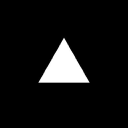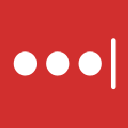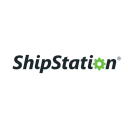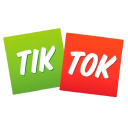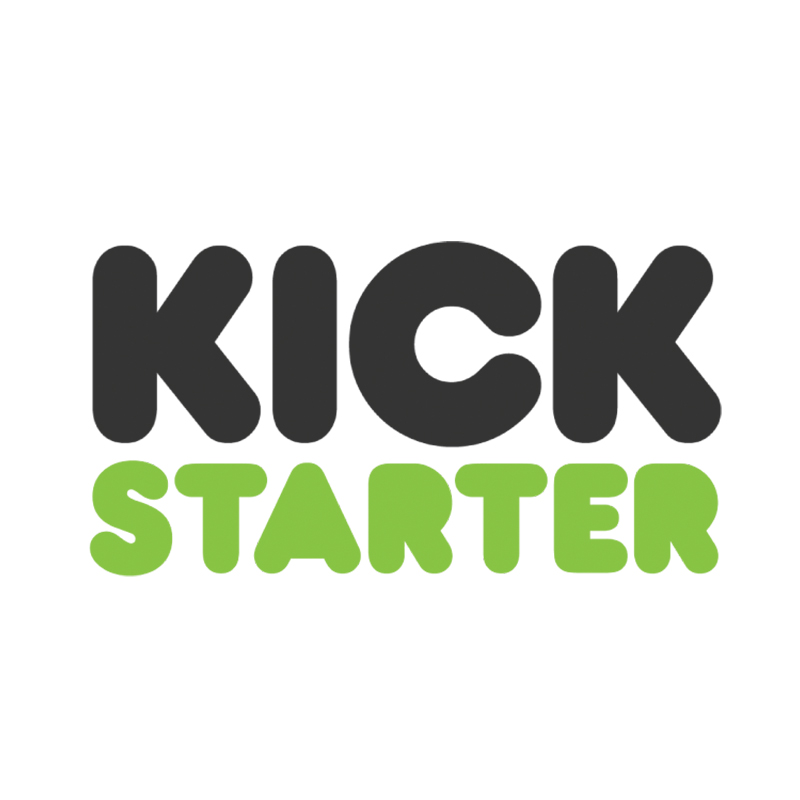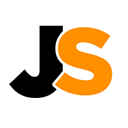
How I Went From NFTs to Jigsaw Puzzles And Make $400/Month
My name is Patrick, and I've spent nearly a decade working as a software developer as my full-time profession. In December 2021, I channeled my entrepreneurial spirit into founding Bear Park, a failed NFT project that blossomed into a premium jigsaw puzzle company. The company's puzzles feature original art depicting a bear-themed amusement park. The art is whimsical and cartoonish in style.
As the founder of a jigsaw puzzle company, it's probably obvious that I have a passion for jigsaw puzzles. Indeed, my personal favorites are those with rich, detailed illustrations that capture your interest from the first piece to the last. I'm particularly drawn to puzzles that not only offer a challenge but also tell a story and introduce fascinating characters. This is the essence of what I’ve created with our 1000-piece puzzles.
Last year we began selling our inaugural puzzle of Series One. This first puzzle presents an amusement park setting, akin to a bear-themed Six Flags. The second and third puzzles in the series will delve into the aquatic adventures of a water park and the frosty excitement of a winter park, respectively. Our primary audience includes adult puzzle enthusiasts, with distribution mainly concentrated in the United States.
Since our Amazon launch in June 2023, our puzzles have steadily generated $400/month in revenue. While we haven't reached profitability yet and have navigated through a learning curve marked by several mistakes, I'm eager to share these lessons. I believe in the quality and appeal of the product; the next phase involves enhancing the audience and distribution to fully realize its potential.

What's your backstory and how did you come up with the idea?
Before June 2021, my work life followed the standard 9-to-5 routine. I’d often brainstorm business ideas, but nothing ever grabbed me enough to take the plunge. The emergence of Non-Fungible Tokens (NFTs) was what set things in motion for me. The sporadic mentions and critiques of NFTs in the media brought back memories of the early excitement around Bitcoin—a trend I regretfully missed.
I kept asking myself, “Why do I keep hearing about this?” So I dove deeper into understanding digital assets and blockchain-guaranteed ownership. Intrigued by its potential, I began hunting for my first NFT purchase. That’s when I came across the Bored Ape Yacht Club on Reddit. The idea of owning a digital token for exclusive access to a club, along with unique art, instantly caught my attention. This curiosity resulted in my first cryptocurrency purchase to get a Bored Ape, kicking off my unexpected journey into entrepreneurship.
I imagined Bear Park as a whimsical realm and I think the success of Bear Park’s first puzzle hinged entirely on the quality of its artwork.
The summer of 2021, now fondly dubbed "NFT summer," was a period of sheer excitement. It truly made me feel like a kid again, eagerly collecting cartoon images of apes, cats, and virtually any animal imaginable. I won’t lie, there was potential to make money in trading these images. To put it in millennial terms, picture paying $200 to mint (buy) a digital Pokémon when the whole collection is still under wraps.
Then, on reveal day, you find out you own the equivalent of a holographic Charizard—the rarest in the collection, and there's only one. Suddenly, you're swamped with offers, some as high as $100k, for your digital Pokémon. This twist of fortune happened to some, though it wasn't the sole reason for participation, especially in the early days.
This example just scratches the surface of NFTs, which include PFPs (profile pictures), generative art, photography, and more. New projects are launched daily, brimming with creativity and the promise of unique experiences. Each came with a roadmap offering unlockables like merchandise for early adopters. This vibrant period was a catalyst for my creativity, inspiring me to launch my own NFT project.
When brainstorming ideas for my NFT project, I remember wanting to avoid treading familiar ground like NFT profile pictures. Instead, my mind was set on location-based ventures. I found the idea of rewarding people for visiting national parks with unique NFTs tailored to each park appealing.
However, while exploring its feasibility, I encountered a snag: accurately verifying someone's location is tricky because GPS data can be faked. Despite this, I discovered that some blockchain projects are exploring reliable ways to prove location. This exploration also led me to consider incorporating NFTs into geocaching. Amidst this blend of ideas, "Bear Park" emerged as a fitting title for a project.
Subsequently, I took the name "Bear Park" and repurposed it for a project that blended my interest in jigsaw puzzles with the imaginative setting of a bear-themed amusement park. The concept of jigsaw puzzles as fractional art resonated with me, echoing the fractional ownership model seen in the NFT space—like owning 1/100th of a Bored Ape, for instance. This insight spurred the creation of Bear Park’s NFT collection comprising 1,000 3D puzzle piece NFTs. The physical puzzle was envisioned as a reward for NFT holders, embodying the idea of bringing together '1,000 true fans' of the brand. You can see the NFT collection here.
I financed the initial development of Bear Park with the profits from my NFT trading activities. The plan was to use the earnings from the NFT collection's mint (sale) to cover the costs of manufacturing the physical puzzles.
The original NFT concept for Bear Park didn’t catch on as I’d hoped, with much of the NFT collection remaining unminted. Struggling to engage the niche Web3 community on Twitter and prioritizing product development over marketing revealed just how crucial effective distribution and audience engagement are.
These challenges led to a valuable realization of the importance of tapping into a wider audience, especially those with a passion for jigsaw puzzles. Motivated by this insight, I decided to shift my focus entirely to developing and self-funding the physical puzzle, marking the beginning of a premium jigsaw puzzle company.
Take us through the process of building the first version of your product.
From my perspective, the success of Bear Park’s first puzzle hinged entirely on the quality of its artwork. Envisioning Bear Park as a whimsical realm, I found a perfect match in the work of Vietnamese artist Nho Huy Le, particularly an illustration he crafted for Odd Pieces called Snack Attack. His distinctive style perfectly captured the essence I envisioned, prompting me to reach out to him via email.
Fortunately, Huy was interested in the concept, and our collaboration began promptly. It's important to note that crafting intricate illustrations like those seen in our puzzles takes time—often several months. This timeline was acceptable to me, as Huy's previous work had instilled confidence in our collaboration.




I discovered my second collaborator, Demi Psaros, for branding and graphic design through the NFT community on Twitter. Her profile led me to her impressive portfolio on Behance, showcasing her work with various brands, particularly those involving physical products. Convinced of her capabilities, we collaborated on the logo and brand development while Huy focused on the illustration.
By September 2022, I was eager to position Bear Park beyond its NFT origins. With an engaging puzzle design and solid branding in hand, I was set to face the next hurdle: manufacturing.
Looking at the success of the Magic Puzzle Company, set up by the folks behind Cards Against Humanity, I was convinced to pick AdMagic for our puzzle production. Reaching out to AdMagic was a big step for me, but knowing they worked with a well-known puzzle brand gave me the push I needed. This choice set Bear Park on its path to creating tangible puzzles.
In total, turning the idea into a product cost me about $5k for the artwork and branding of the puzzle. On top of that, I put down around $20k to make 2,000 puzzles with AdMagic. Looking back, I realize I could have managed with just 1,000 puzzles, achieving the same quality with fewer units.
There's something deeply satisfying about immersing myself in the creative process, especially when it involves collaboration.
Describe the process of launching the business.
Before launching, I had to decide whether to sell through Bear Park’s website, Amazon, or both. It’s a significant decision, likely familiar to many small businesses. While Amazon can eat into your profit margins, it also has the potential to attract a larger customer base. At first, I planned to sell through both channels, but eventually, I decided to concentrate on Amazon.
I quietly launched sales on Amazon in June 2023, complemented by pay-per-click (PPC) ads on Amazon, Facebook, and Instagram. My initial focus was on learning from PPC outcomes, grasping the cost per acquisition, and gathering valuable insights. However, by October, I shifted entirely to organic promotion, finding PPC unsustainable as I grew weary of the expenditure.
Though I wouldn’t readily recommend this 'quiet launch' strategy, it was the course I chose after transitioning from an NFT project with a significant financial commitment. The decision to share this venture with family and friends was one I wasn’t prepared for—I wanted to see some sales first. If I’m being completely honest, I was just afraid to share the news because Bear Park wasn’t a success yet in my eyes.
Looking back, I wish I had done things differently to fund and launch the first puzzle. If given the chance, I would have redirected at least half of the funds towards building a robust audience presence, primarily leveraging platforms like TikTok. Establishing an email subscription list and other audience-building strategies would have been prioritized. Only once the audience reached a desired level would I have proceeded with a Kickstarter launch.
Since launch, what has worked to attract and retain customers?
Since our quiet launch, we've sold 80 puzzles, with sales steadily improving each month. My goal for this year is to reach 100 puzzles sold each month.
To improve our Amazon product listing, I've upgraded our images and utilized Jungle Scout to optimize our product title and copy, incorporating effective keywords along with other enhancements. High-quality images are key to effectively showcasing our puzzles.
Getting reviews is tough, yet they're crucial for attracting customers. It seems people are less inclined to leave a review after a positive experience, which I get—I can't remember the last time I left an Amazon review myself. Given that completing a 1000-piece puzzle can take some time, often weeks, customers may not feel ready to leave a review immediately after purchase, and the moment to do so might pass.
How are you doing today and what does the future look like?
As mentioned, we're currently exclusive to Amazon, which has been successful for us. Nonetheless, I'm aware of the risks associated with depending solely on one platform. Therefore, I'm committed to improving our website's search rankings and driving more traffic to it with the goal of resuming sales there soon.
I'm hopeful that in the future, puzzles 2 and 3 will be available for purchase. They're ready to go, but I'm not in a position to self-fund their production. The plan is to expand Bear Park's audience and potentially launch a Kickstarter to secure funding in advance.
Looking forward, I see significant potential in leveraging TikTok to broaden our reach. With #puzzletok gaining traction and the platform's audience growing, I'm excited about the opportunities TikTok presents for connecting with new customers.
Through starting the business, have you learned anything particularly helpful or advantageous?
Starting the business has been a journey of self-discovery, teaching me about my strengths and areas for growth. One of the key lessons I've learned is that audience building doesn't come naturally to me. The idea of promoting myself and my product—essentially saying, "Hey, look at me!"—is something I find uncomfortable. However, I'm making efforts to step outside my comfort zone, experimenting with platforms like TikTok to engage potential customers. Recognizing this as a personal challenge, I understand the importance of either improving in this area or eventually delegating it to someone more skilled.
On the flip side, I thrive in the product development phase. There's something deeply satisfying about immersing myself in the creative process, especially when it involves collaboration. Working alongside talented individuals has been a highlight of this journey. Their reliability and skill have not only made the process more enjoyable but also contributed significantly to the quality of our product.
In essence, navigating the ups and downs of starting a business has highlighted where my true passions lie and where I could use improvement or support. This self-awareness is invaluable as it guides my decisions and helps shape the future path of the business.
What platform/tools do you use for your business?
Initially, Jungle Scout was instrumental for a month in optimizing our Amazon listing, a tool we no longer need.
For making adjustments to our website, I turn to VS Code, whereas Amazon Seller Central is essential for tracking sales and shipments.
To expand our audience, I've been experimenting with TikTok, and I use the free version of SEMRush for insights into Google rankings.
For communication, Gmail and Discord are my go-to, allowing seamless coordination with my colleague Demi despite time zone differences.
ChatGPT has become an invaluable virtual sounding board for brainstorming and advice. It feels like I have a co-founder.
What have been the most influential books, podcasts, or other resources?
While I'm still in the process of completing it, "Profit First" has helped clarify the complexities of managing business finances. Additionally, the books authored by the team at 37signals have provided valuable insights and perspectives.
As for podcasts, "How I Built This" has been a particularly engaging listen. I highly recommend checking out the episode featuring the Bored Ape Yacht Club for an intriguing discussion. You can find it here: How I Built This - Bored Ape Yacht Club episode.
Advice for other entrepreneurs who want to get started or are just starting out?
Starting a jigsaw puzzle company can seem appealing due to its perceived accessibility – it sounds like fun, I get it. However, success ultimately relies on cultivating and nurturing your audience. Strong branding, like the one I’ve tried to cultivate for Bear Park, is paramount, as sales naturally follow an expanded audience base.
Financial investment plays a crucial role in launching your venture, whether it's through Kickstarter or another avenue. Even with crowdfunding, it's essential to have a dedicated audience beforehand, to ensure a successful campaign. Consider partnering with a popular influencer and offering them a cut to boost visibility.
Breaking down daunting tasks into manageable steps is essential for progress. As the adage goes, "How do you eat a whale? One bite at a time." Embrace each challenge as it comes, focusing on incremental progress.
When considering sales channels, carefully evaluate the pros and cons. Whether you opt for platforms like TikTok or Amazon, understand the trade-offs involved, including their impact on profit margins and brand control. By thoroughly assessing these factors, you can make informed decisions that align with your business objectives and priorities.
Are you looking to hire for certain positions right now?
Currently, I don't have any opportunities, but please don't hesitate to reach out via email if you spot any quick wins to enhance the business.
Where can we go to learn more?
If you have any questions or comments, drop a comment below!

Download the report and join our email newsletter packed with business ideas and money-making opportunities, backed by real-life case studies.

Download the report and join our email newsletter packed with business ideas and money-making opportunities, backed by real-life case studies.

Download the report and join our email newsletter packed with business ideas and money-making opportunities, backed by real-life case studies.

Download the report and join our email newsletter packed with business ideas and money-making opportunities, backed by real-life case studies.

Download the report and join our email newsletter packed with business ideas and money-making opportunities, backed by real-life case studies.

Download the report and join our email newsletter packed with business ideas and money-making opportunities, backed by real-life case studies.

Download the report and join our email newsletter packed with business ideas and money-making opportunities, backed by real-life case studies.

Download the report and join our email newsletter packed with business ideas and money-making opportunities, backed by real-life case studies.

